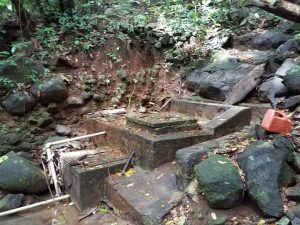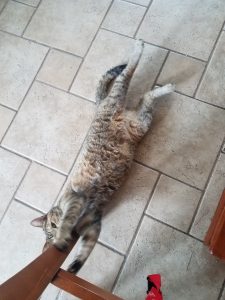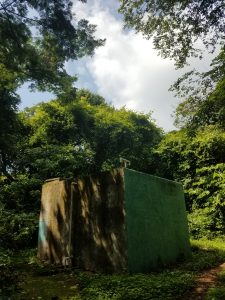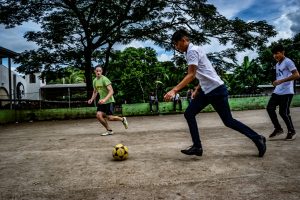The majority of my time spent in Indy after my trip to El Salvador so far has been focusing in on what project I want to work on for the remainder of the summer. After some deliberating with my supervisor, we decided that I would work on researching ultraviolet (UV) water purification processes and their potential compatibility with water system projects that CoCoDA has been implementing in Central America.
I didn’t have many, but one of the concerns that I had going into this internship process was that I would end up just doing busy work for the summer. This is work that could potentially be useful, but in the end is just a made up task to keep me busy. In this scenario I still would have done all the wonderful learning and reflecting that I knew would come with the CAPS style internship, but without really contributing to the organization. I had no idea that on top of the learning and reflecting I would be doing research for the organization that could change the way that they do water projects in the future. This research could really contribute to providing a more sustainable water system to families, and that is an exciting concept for me.
The current method of purifying the water in the systems that we have helped implement so far is through chlorine tablets, a method that works, but with a couple drawbacks. The first drawback is the upkeep. A trained person has to apply the chlorine to the water in regular monthly or weekly intervals throughout the year. This also comes with the regular purchasing of the chemical to purify the water. The second major drawback is the change in the water’s flavour. After shocking the water with chlorine, the flavour of the water becomes quite bad, providing a motivation for the people to put less chlorine in the water. The potential for a new method of purification that doesn’t change the flavour and only requires UV light bulb changes once a year is quite appealing.
This UV purification leads to a number of questions though. What specific purification device do you use, one that is already manufactured or should you attempt to design a new one? At what point along the journey of the water, from the ground to the home, do you purify it? Should you purify all the water or just the water that will be used for drinking? These questions and more all have many answers and are often dependent on each other. My job this summer is to find potential engineering solutions to these unique problems.

A water collection tank, the beginning of the water’s journey as it makes it way to the families in a community
Besides working on the project, Monday of this past week brought a CoCoDA board meeting. This meeting continued to help me understand the inner mechanisms of a service based organization. The majority of the meeting centered on keeping the board up to date with what CoCoDA was doing, but seeing the employee interaction with board members showed me how imperative it was to have a governing board. The presence of an objective panel is a way of making sure that CoCoDA stays on the right path and it instills confidence in the employees that CoCoDA is not being run unchecked.
This really cool project paired with the organization I am working for, and the other (really awesome) CAPS fellows that I am living with has so far made my time in Indy an enriching experience. I am so happy with how the summer is going and I’m excited to see where it has yet to go.


